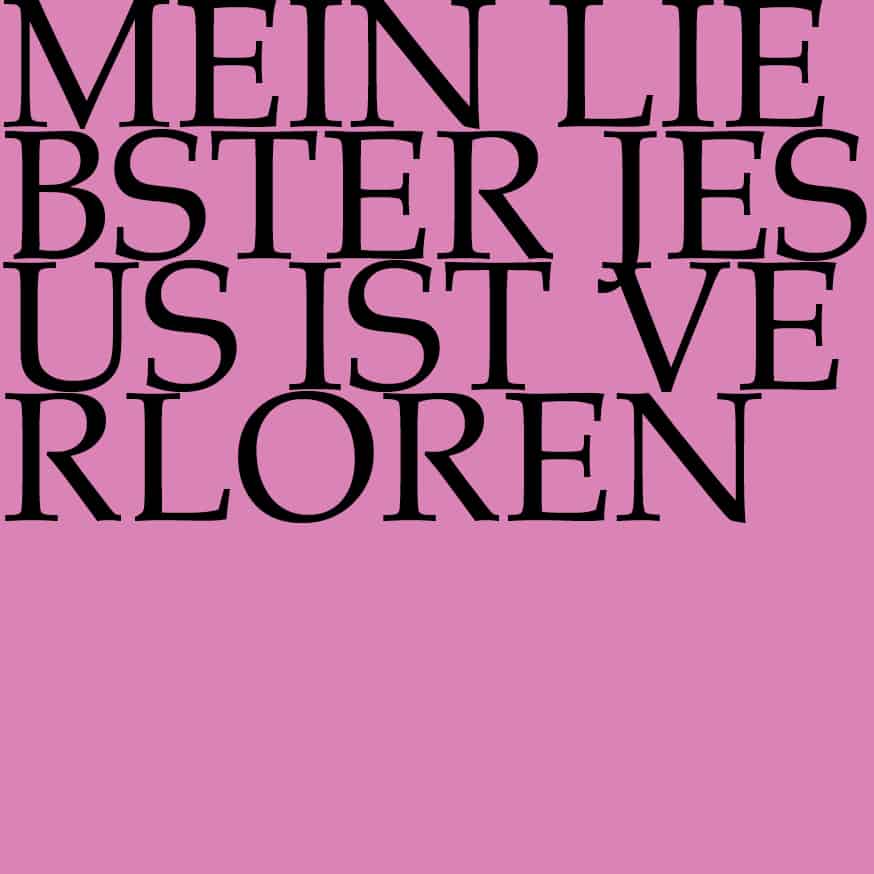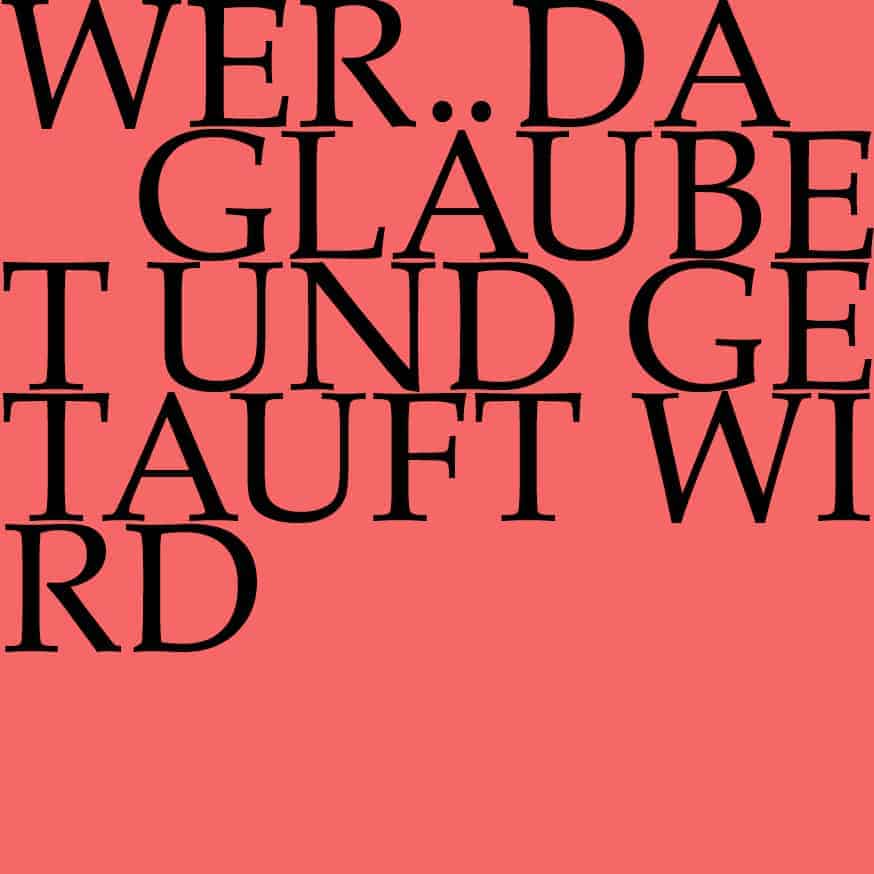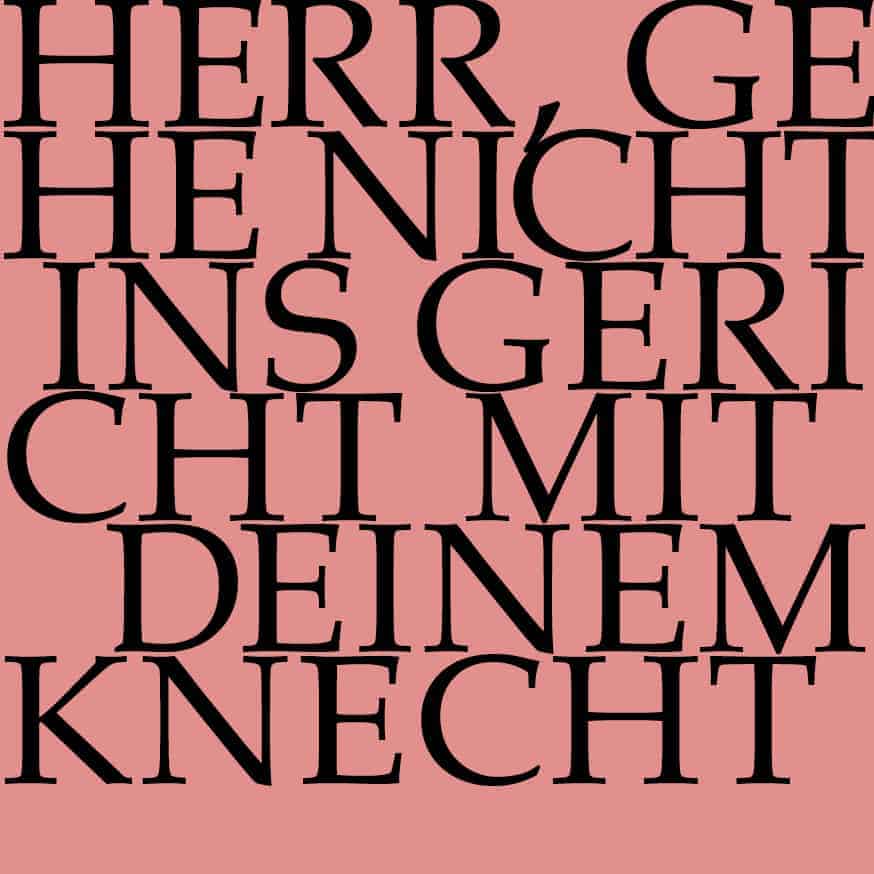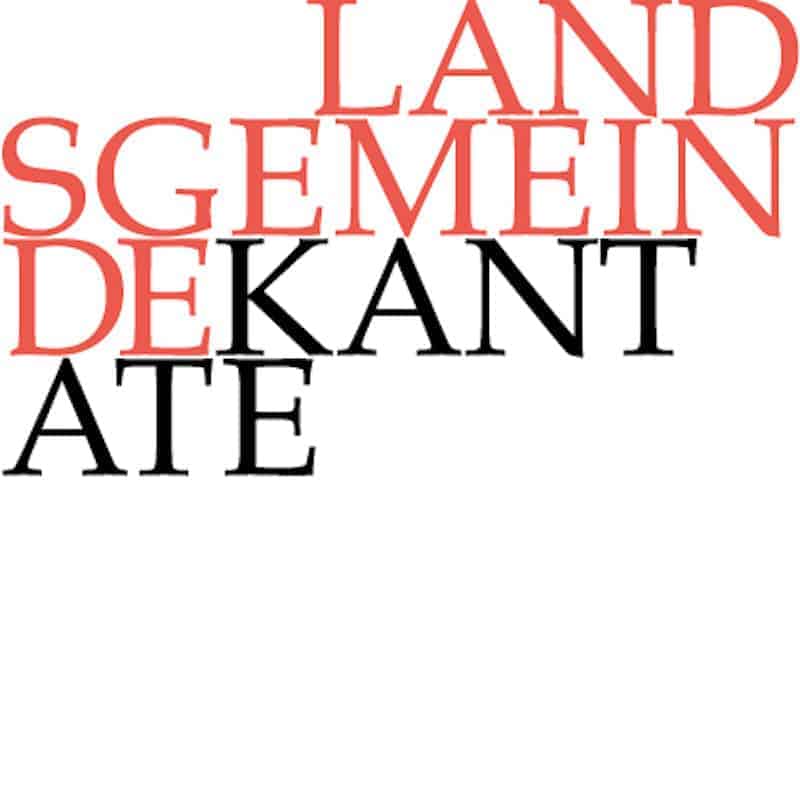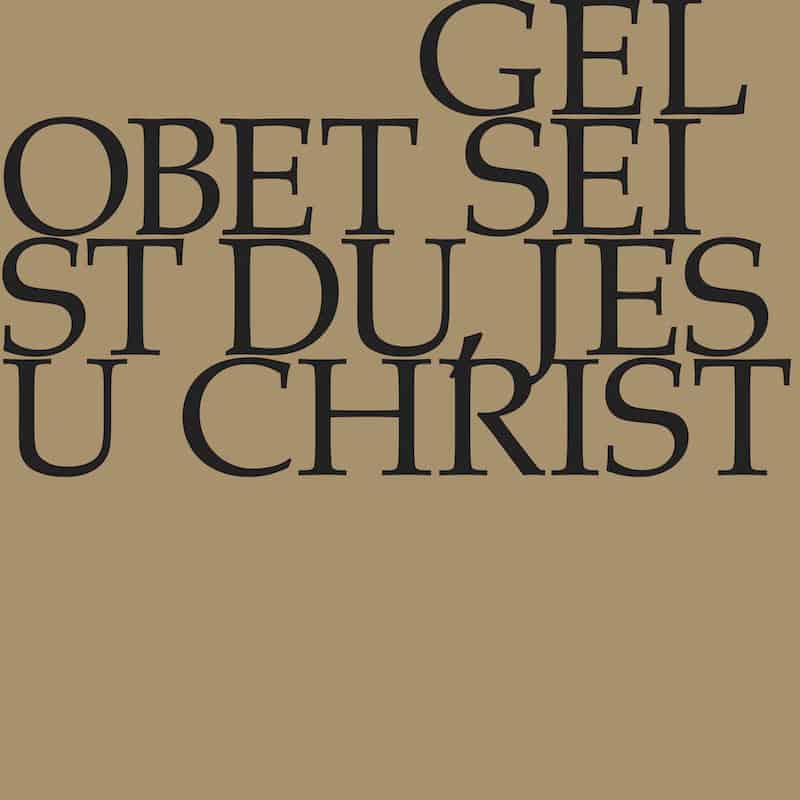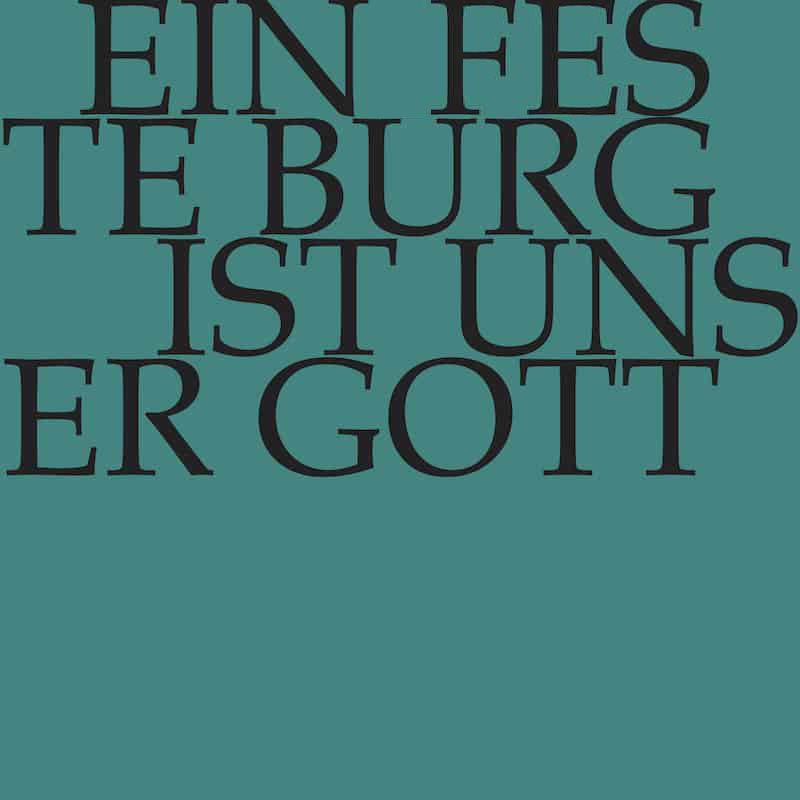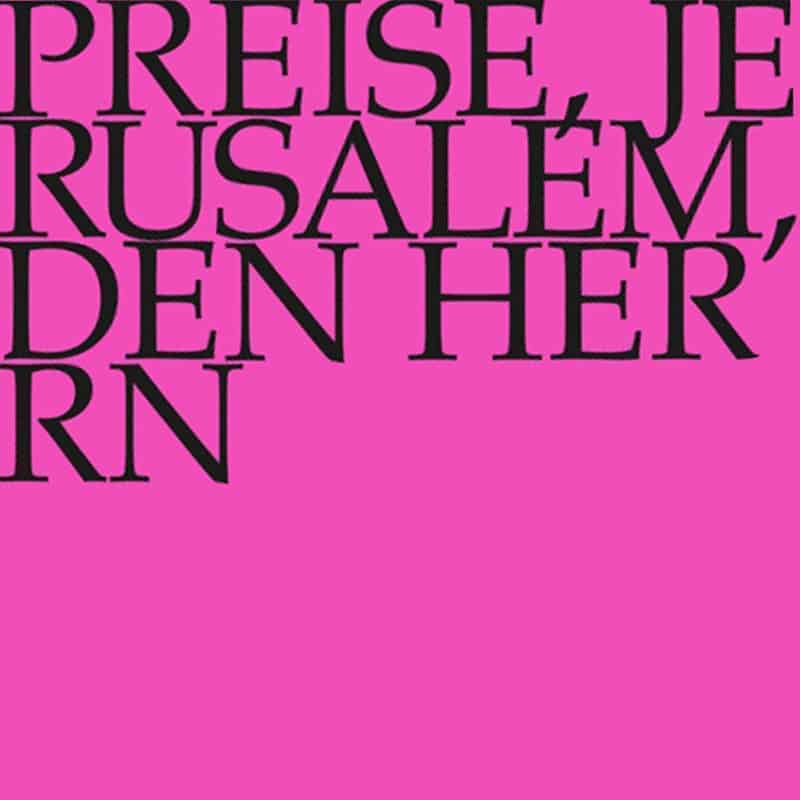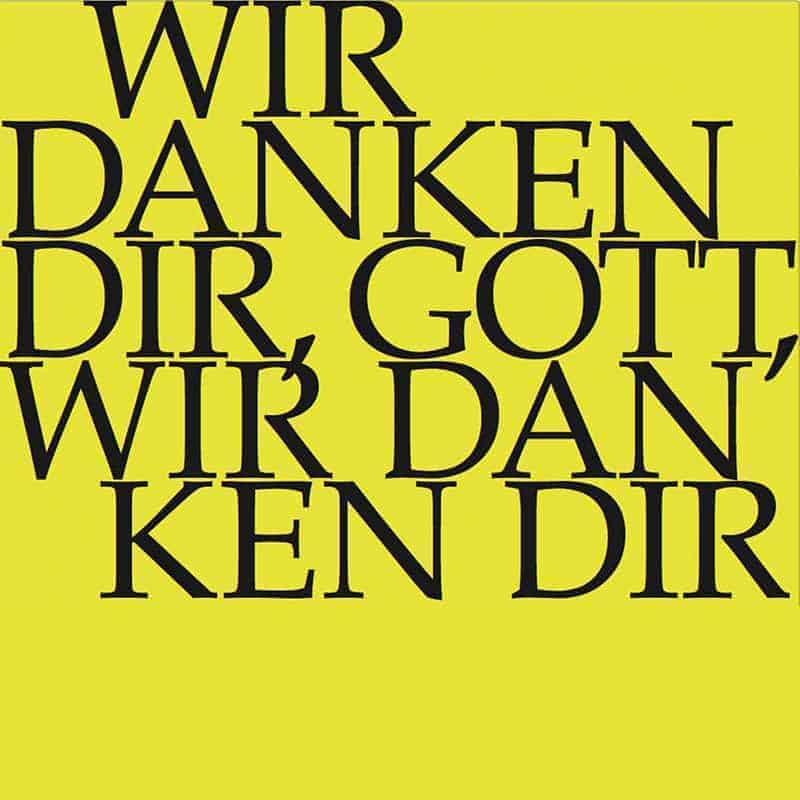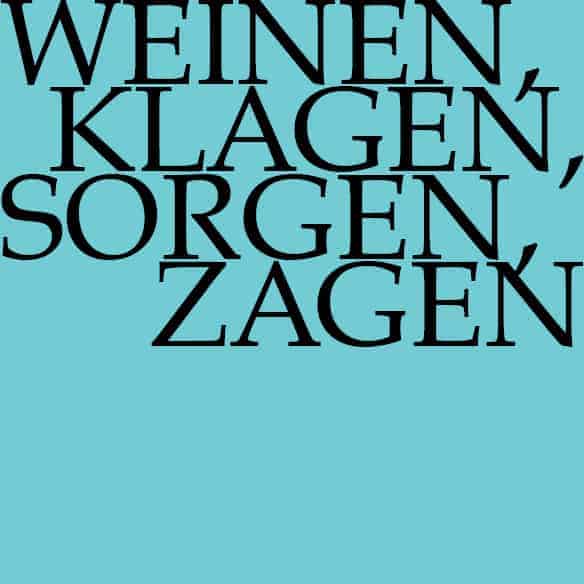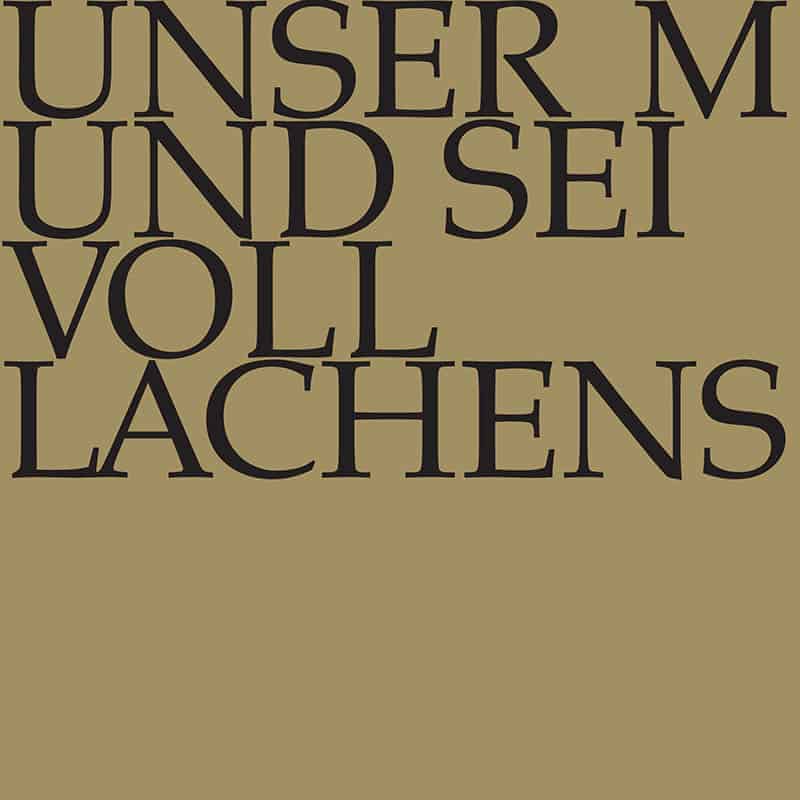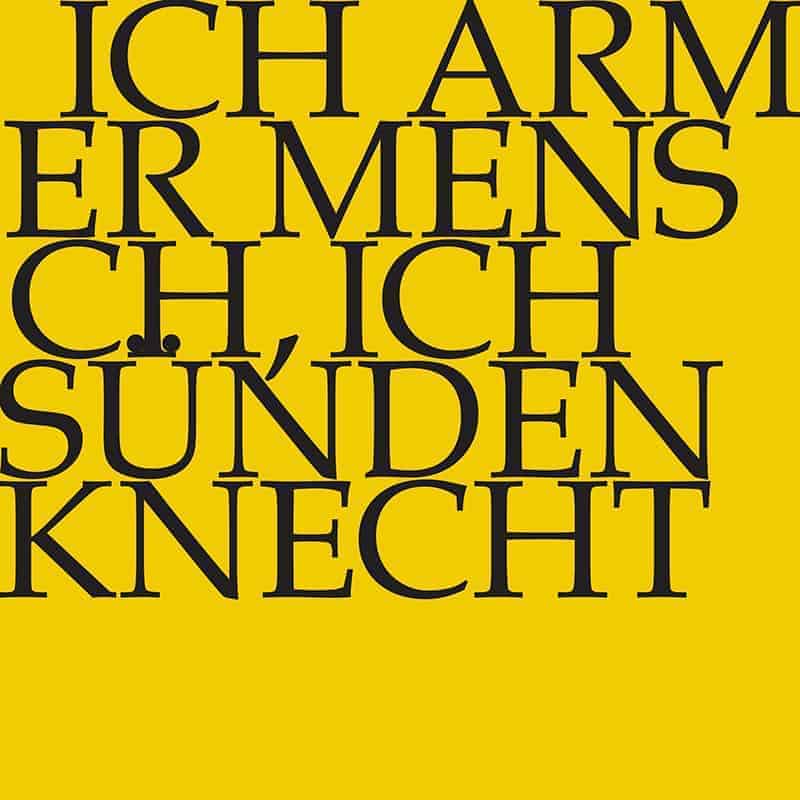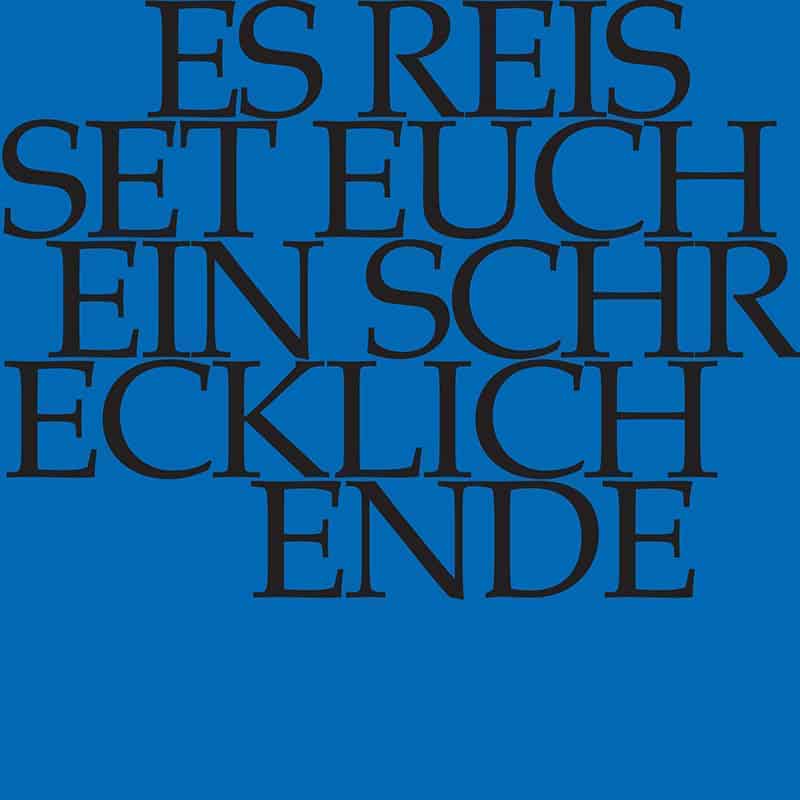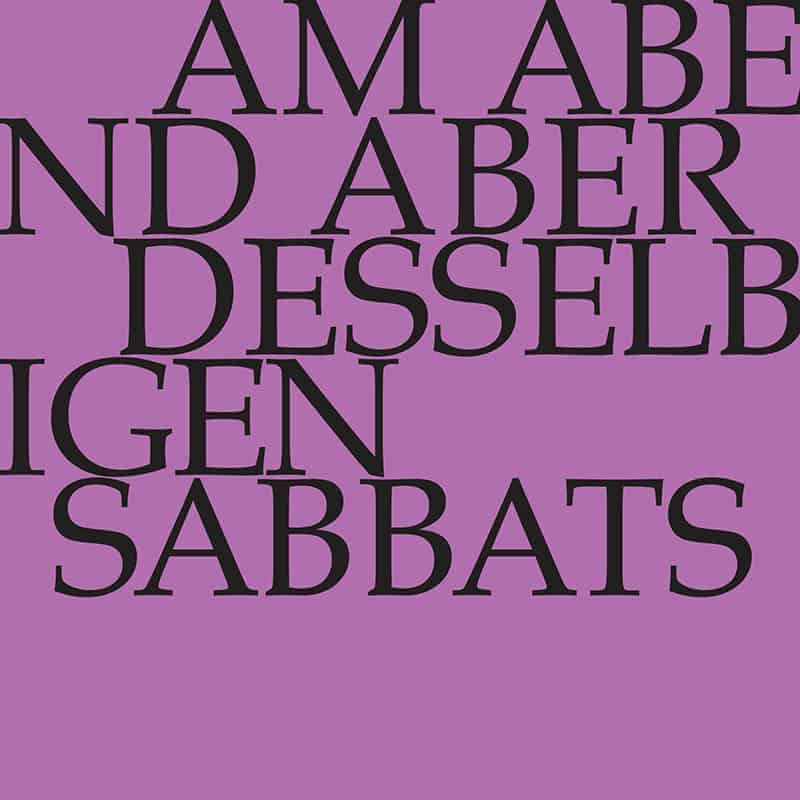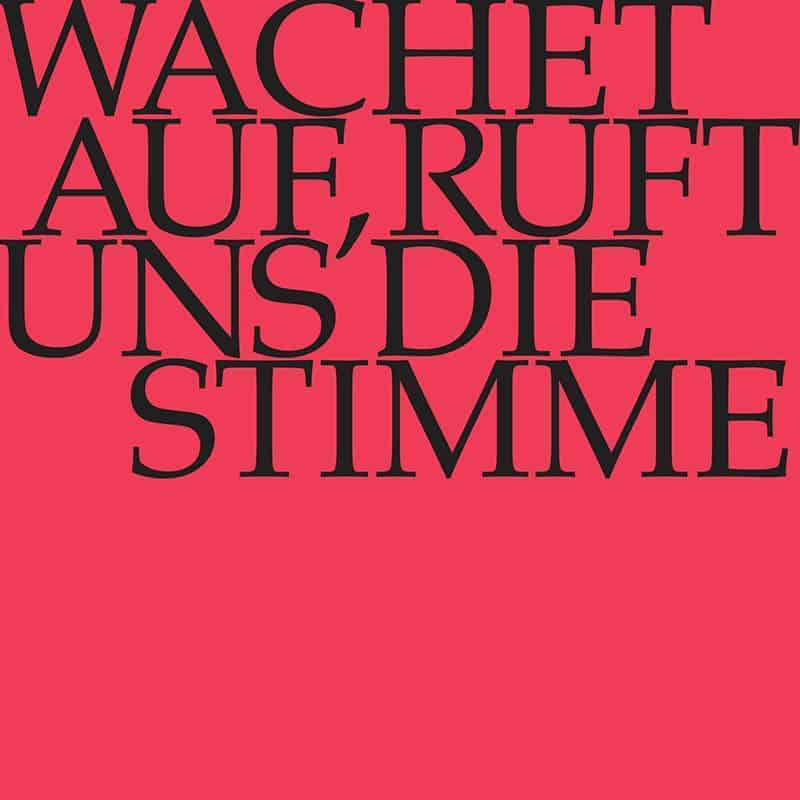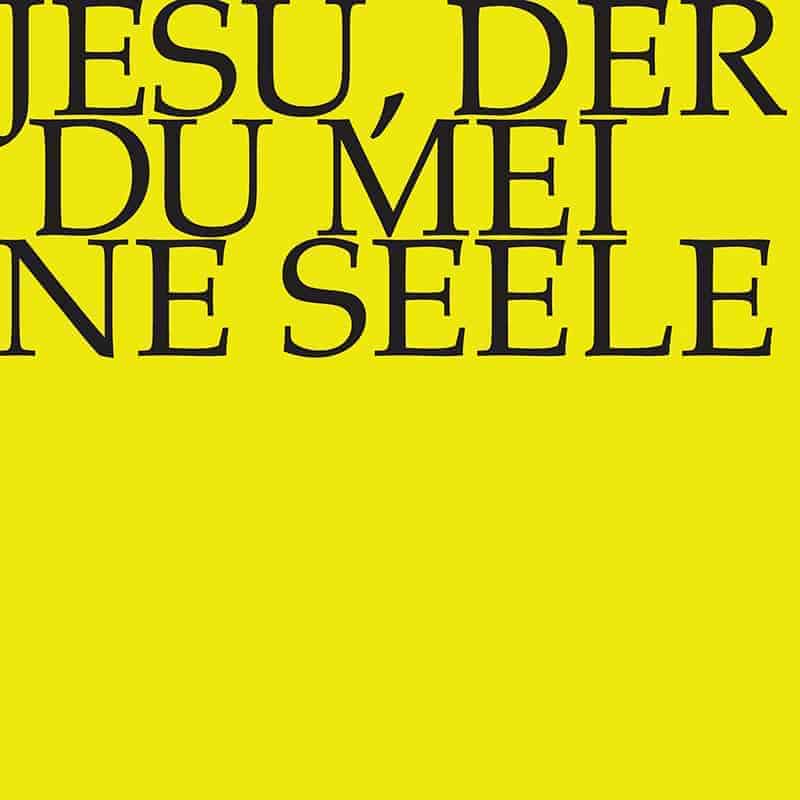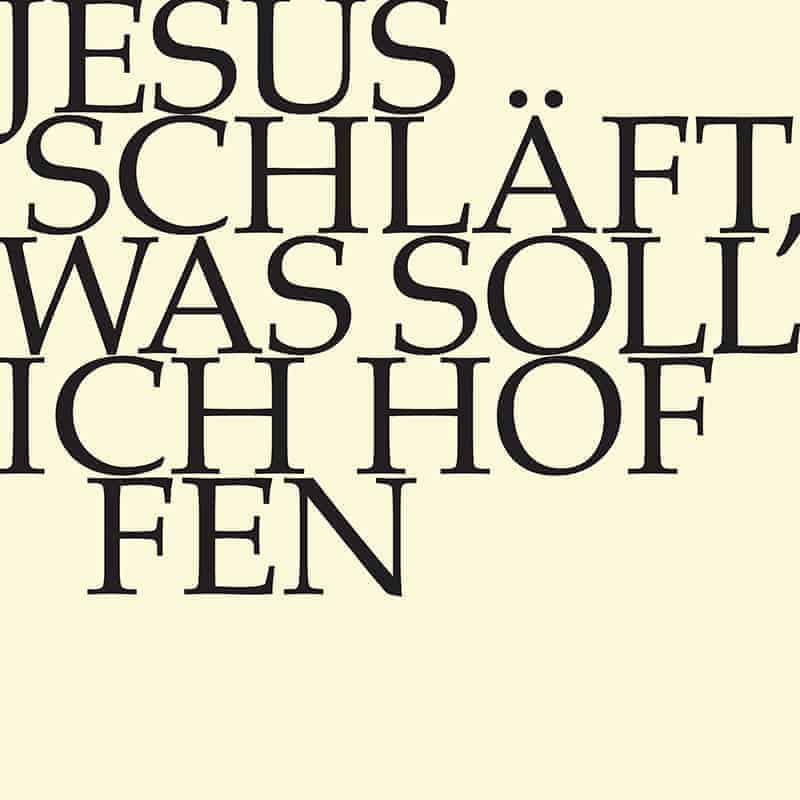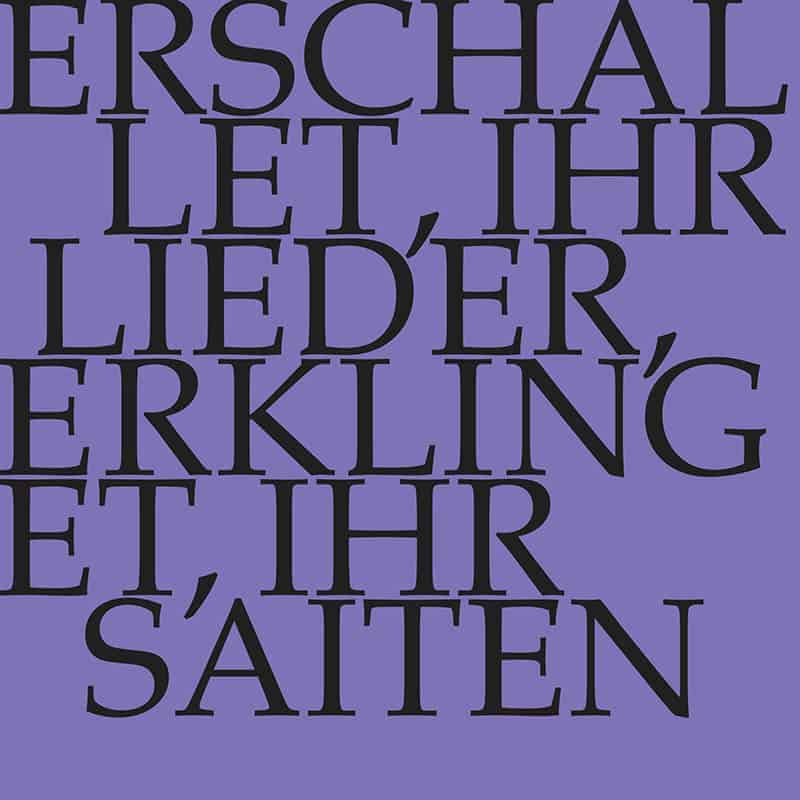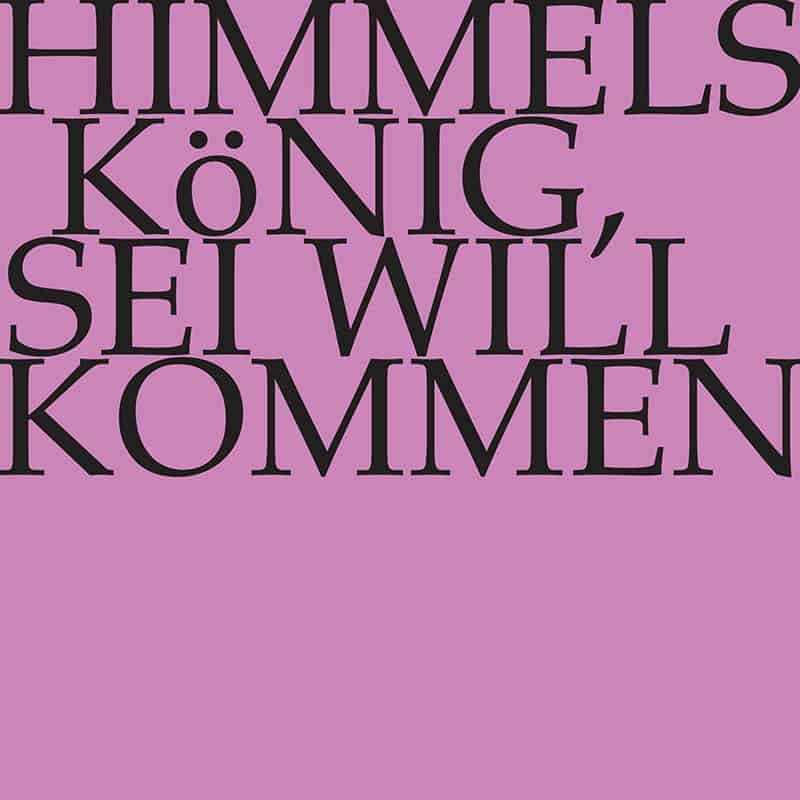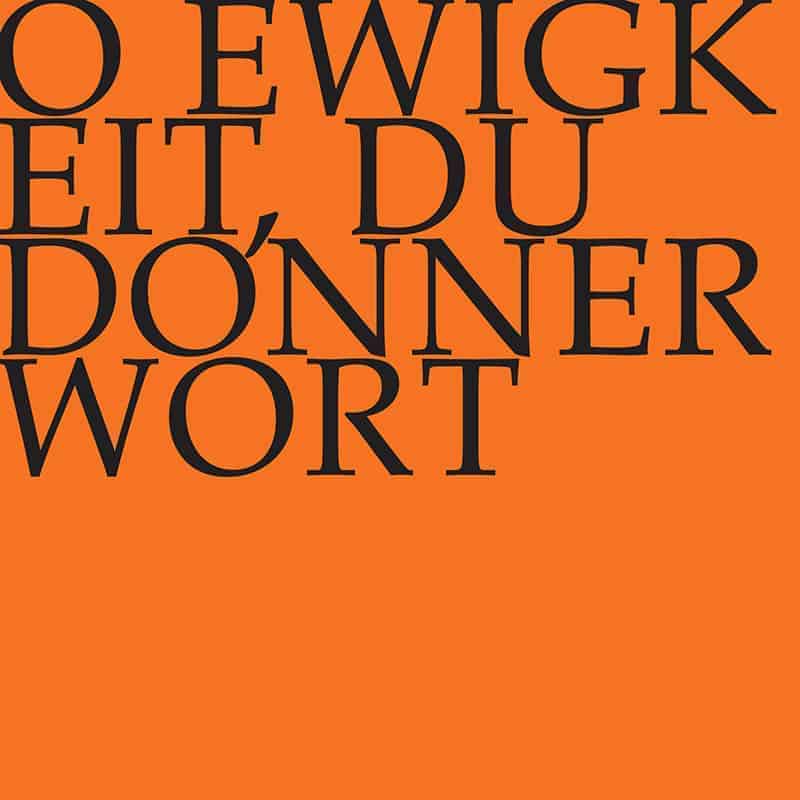(My precious Jesus now hath vanished) for alto, tenor and bass, vocal ensemble, oboe d’amore I+II, strings and basso continuo
Archives
Wer da gläubet und getauft wird
(Who believeth and is baptized) for Exaudi (The Sunday after Ascension), for soprano, alto, tenor and bass; oboe d’amore I+II, oboe da caccia I+II, violoncello piccolo, strings and basso continuo
Herr, gehe nicht ins Gericht mit deinem Knecht
(Lord, go thou not into court with this thy thrall) for soprano, alto, tenor and bass, vocal ensemble, oboe I+II, corno da tirarsi, strings and basso continuo
Landsgemeindekantate «Alles Leben strömt aus dir»
for soprano, alto, tenor and bass, vocal ensemble and orchestra The Swiss town of Trogen and its main square situated in front of the church are traditionally associated with the Landsgemeinde assemblies of the canton of Appenzell Ausserrhoden – and thus with the hymn “Ode an Gott” (Ode to God) sung at the beginning of … Read More
Gelobet seist du, Jesu Christ
(All glory to thee, Jesus Christ) for soprano, alto, tenor and bass, vocal ensemble, horn I+II, timpani, oboe I–III, strings and basso continuo First performed on 25 December in 1725, cantata BWV 91 “Gelobet seist du, Jesu Christ” (All glory to thee, Jesus Christ) is a glorious Christmas composition befitting Bach’s chorale cantata cycle. Despite … Read More
Ein feste Burg ist unser Gott
(A mighty fortress is our God) for soprano, alto, tenor and bass, vocal ensemble, oboe I–III, oboe d’amore I–II, oboe da caccia, taille, trumpet, timpani, organ, strings and basso continuo Bach’s cantata BWV 80, “A mighty fortress is our God”, is set to Luther’s spirited hymn from 1529 that first entered the Protestant canon after … Read More
Laß, Fürstin, laß noch einen Strahl
(Let, Princess, let still one more glance) for soprano, alto, tenor and bass, vocal ensemble, transverse flute I+II, oboe d’amore I+II, viola da gamba I+II, liuto I+II, strings and basso continuo The performance of the funeral ode “Let, Princess, let still one more glance” BWV 198 on 18 October 1727 in Leipzig’s university church, the … Read More
Preise, Jerusalem, den Herrn
(Praise, O Jerusalem, the Lord) for soprano, alto, tenor and bass, vocal ensemble, trumpets I-IV, timpani, flauto dolce I+II, oboe I-III, oboe d’ amore I+II, strings and basso continuo When Bach commenced his position as Thomas Cantor in 1723, he was, despite a long selection process with many rival candidates, the great hope of an … Read More
Halt im Gedächtnis Jesum Christ
(Hold in remembrance Jesus Christ) for alto, tenor and bass, vocal ensemble, corno da tirarsi, transverse flute, oboe d’ amore I+II, bassoon, strings and basso continuo The introductory chorus to cantata BWV 67 opens with a heroic horn figure and a triadic, fanfare-like theme that underscores the proximity of Quasimodogeniti Sunday to the Easter events … Read More
Wir danken dir, Gott, wir danken dir
(We give thee thanks, God, we give thee thanks) for soprano, alto, tenor and bass, vocal ensemble, trumpets I-III, percussion, bassoon I+II, strings, organo obbligato and continuo The annual service on St Bartholomew’s Day to inaugurate the new town council numbered among the highlights of the festive calendar in Leipzig. Despite Bach’s turbulent relationship to … Read More
Weinen, klagen, sorgen, zagen
(Weeping, Wailing, Grieving, Fearing) for alto, tenor and bass, vocal ensemble, tromba, oboe, bassoon, strings and continuo
Unser Mund sei voll Lachens
(Make our mouth full with laughter) for soprano, alto, tenor and bass, vocal ensemble, trumpet I–III, timpani, transverse flute I+II, oboe I+II+III (oboe d‘amore, oboe da caccia), bassoon and strings Composed for Christmas Day in 1725 to an unconventional libretto by Georg Christian Lehms, cantata BWV 110 explores three bible verses in three successive arias … Read More
Ich armer Mensch, ich Sündenknecht
(I, wretched man, I, slave to sin) for tenor, vocal ensemble, transverse flute, oboe d‘amore, strings and continuo
Es reißet euch ein schrecklich Ende
(To ruin you an end of terror) for soprano, alto, tenor and bass, trumpet, strings and continuo It is said that Bach’s musicians had precious little rehearsal time and often sight-read their performances. If this is true, the shock they must have suffered in the dim light of an autumn morning on 14 November 1725 … Read More
Am Abend aber desselbigen Sabbats
(That evening, though, of the very same Sabbath) for soprano, alto, tenor and bass, oboe I+II, bassoon, strings and continuo. That Easter would in time be celebrated as a triumph of life over death could hardly have been foreseen by Christ’s disciples. For them, Good Friday and Easter Sunday brought not joy, but immeasurable pain: … Read More
Wachet auf, ruft uns die Stimme
(Wake, arise, the voice calls us) for soprano, tenor and bass, vocal ensemble, horn, oboe I+II, taille, bassoon, strings and continuo. Through their interpretations of the ancient bible stories and parables, baroque church cantatas – almost as a second sermon – strove to provide guidance and instruction that was relevant to the daily lives of … Read More
Jesu, der Du meine Seele
(Jesus, thou who this my spirit) for soprano, alto, tenor and bass, vocal ensemble, flute, oboe I+II, horn, bassoon, strings and continuo. The cantata “Jesu der du meine Seele” (Jesus, thou who this my spirit) BWV 78 numbers among the most starkly contrasting compositions of Bach’s cantata oeuvre. Composed for the Fourteen Sunday after Trinity … Read More
Jesus schläft, was soll ich hoffen
(Jesus sleeps, what should my hope be?) for alto, tenor and bass, (soprano in closing chorale), recorder I+II, oboe d’amore I+II, strings and continuo. The libretti set to music by Bach for the Sundays after Epiphany speak predominantly of abandonment, angst and resignation. The fundamental Christian belief in the salvation of the soul and the … Read More
Erschallet, ihr Lieder, erklinget, ihr Saiten
(Resound now, ye lyrics, ring out now, ye lyres!) for soprano, alto, tenor and bass, vocal ensemble, trumpets I-III, timpani, bassoon, strings and continuo. Bach initially composed cantata BWV 172 in 1714 for Pentecost in Weimar, but revised and re-performed it several times throughout his Leipzig years, even transposing it from C major to D … Read More
Himmelskönig, sei willkommen
(King of heaven, thou art welcome) for alto, tenor and bass, vocal ensemble, recorder, strings and continuo. The cantata “Himmelskönig, sei willkommen” (King of heaven, thou art welcome) BWV 182, written for Palm Sunday in 1714, was Bach’s first composition following his appointment as Konzertmeister at the ducal court of Weimar. Based on a specification … Read More
O Ewigkeit, du Donnerwort
(Eternity, thou thundrous word) for soprano, alto, tenor, bass, oboe, oboe d‘amore I+II, strings and continuo. When composing the cantata “O Ewigkeit, du Donnerwort” (Eternity, thou thunderous word) BWV 60, Bach was faced with a particularly interesting challenge. In contrast to the chorale cantata BWV 20 which also begins with the same church hymn, this … Read More


